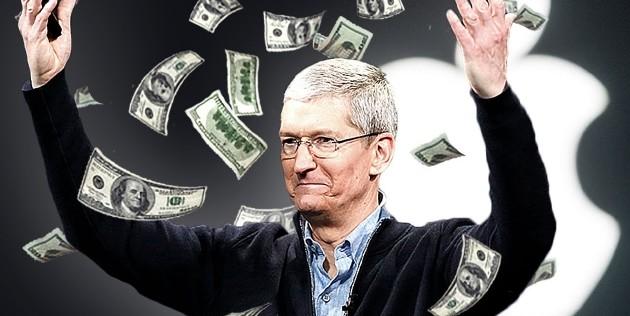
According to reports, influencers on platforms such as YouTube have complained that Apple's commissioning system has made it difficult to create.
In today's fiscal first quarter 2022 conference call, Apple CEO Tim Cook said that Apple has 1.8 billion active devices and more than 785 million cross-platform paid subscribers; in the past 12 months, Apple's service business revenue alone has exceeded $72 billion, which has reached the annual revenue level of Fortune 50 companies.
With the popularity of paid subscriptions, tensions between creators and Apple are likely to only worsen.
Influencers on social media such as YouTube and Instagram are gradually turning on "fan payment." Many fans are not averse to paying for valuable content, but these influencers who make money by collecting subscription fees have a common enemy while competing for the content market - Apple.
Some app developers have long complained about Apple's takers from digital purchases of iPhone apps. For example, if you buy extra lives in a video game app, or pay for a dating service on an iPhone, Apple will take a 30% of the money you pay the developer.
The draw is nothing new to everyone, and the protracted lawsuit between Apple and Fortnite developer Epic Games has not yet reached a conclusion. In addition to the commission, the money that creators use online through the online platform has also been indirectly sucked away by Apple.
Here's an example: Let's say you're an iPhone user who subscribes to a channel on Youtube on your phone for $5 a month. Well, the $5 would be split into three parts: Apple took $1.50; YouTube took $1.05, and the channel you subscribed to ended up making $2.45, less than half of what you paid.
Many Internet creators complain that Apple is too high. They believe that Apple plays a small role in the relationship between authors and fans, and Apple's high profits make it more difficult to create content that is not easy.
Source of Hank Green/Wired Magazine
YouTube headliner Hank Green said: "The Apple tax is too bad and completely unreasonable.
An Apple spokesperson said that considering Apple's role in the Internet content economy and the convenience of mobile payments, the "Apple tax" is set reasonably. The spokesperson said users are clearly more at ease with iPhone payments than paying directly with account information to YouTube and Instagram creators.
The spokesperson also stressed that Apple doesn't take a cut when it comes to paying for influencers with browsers or using "virtual tip jars" on apps like Twitch.
As mentioned at the beginning, with the popularity of the "fan economy", the tension between creators and Apple is likely to only worsen.
For head content creators, Apple's high percentage may still be affordable. But Jasmine Rice, co-founder of creators' platform Fanhouse, said the "Apple tax" is a very painful expense for creators below the head, that is, the real majority.
Fanhouse publicly tore with Apple last year, asking Apple to adjust the draw. Rice said Fanhouse tried to persuade Apple to give up commissions or cut the drawdown, but was rejected. Apple asked Fanhouse to pay the commission within 6 months.
Industry insiders have long complained, saying that the Apple tax not only makes it more difficult for creators to make money, but also hinders the implementation of some potential creative ideas.
According to the New York Times, investor Li Jin said that he has seen many commercial ideas that cannot land, that is, after removing the Apple tax, the creators have little room for profit. The investor said that "for these platform creators, the good content expenditure is not small, but the income is not attractive." ”
Apple has accelerated the transformation from the PC era to the mobile Internet era, and from this point of view, the "creator economy" as a platform in the mobile Internet era is indeed not unrelated to Apple. But the norms and payment systems established in the early days of digital life are hindering the development of content on today's Internet platforms.
Source: Sina Technology